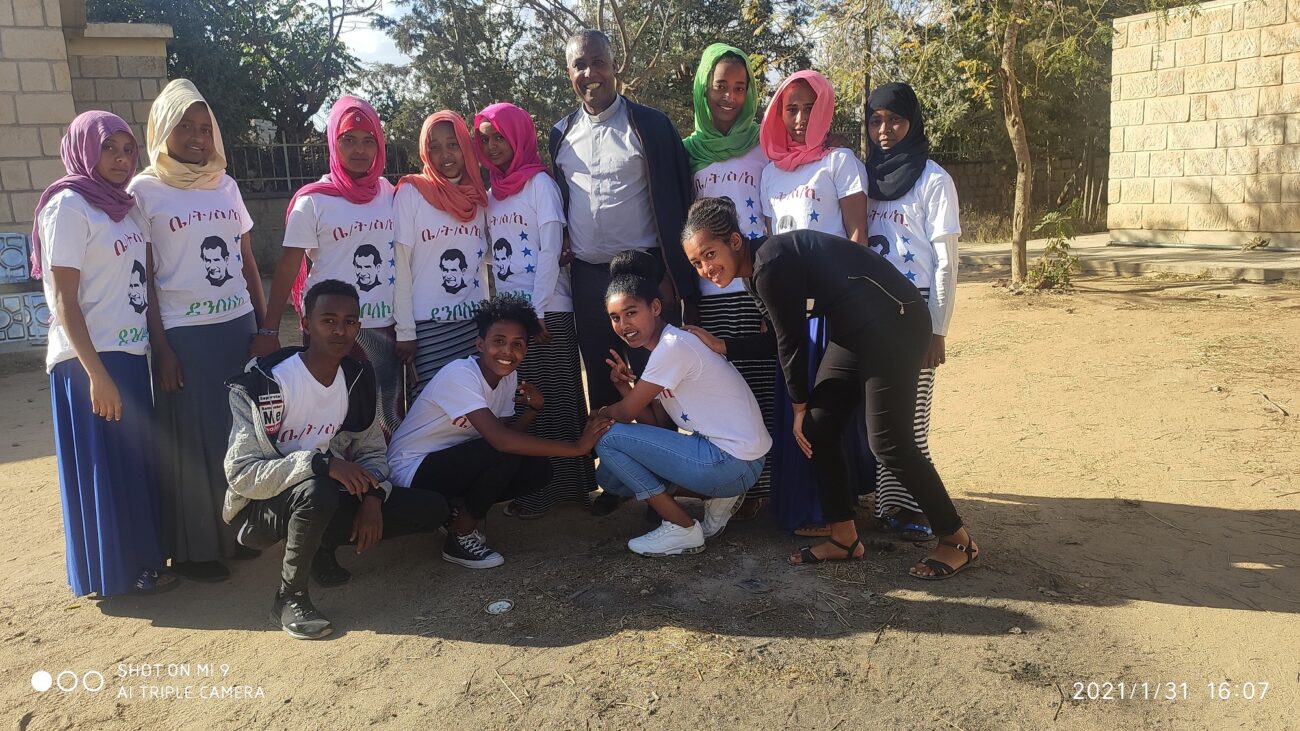ERITREA: Funding to buy cows aids school’s self-sustainability efforts

Don Bosco Technical School in Dekemhare receives funding from Salesian Missions to buy cows to help aid self-sustainability
(MissionNewswire) Salesian missionaries working at the Don Bosco Technical School in Dekemhare, a town roughly 25 miles southeast of the capital city of Asmara in Eritrea, have been able to buy two cows and food items thanks to donor funding from Salesian Missions, the U.S. development arm of the Salesians of Don Bosco.
Don Bosco Technical School provides education to 400 boys and girls. The school offers technical courses in automotive work, general metal, general mechanics, carpentry, building construction, woodwork or furniture making, electricity, electronics, and surveying. In addition, students take information technology and academic courses. Each trade course of study is two years long and at completion, students sit for a national exam. They also enter into military training for six months and are assigned a job by the government.
In addition to the technical school, Salesian missionaries have aspirant training and a youth center.
Overall, Salesian missionaries hope to have funding for additional cows and to enlarge the barn to increase the self-sustainability of Salesian initiatives.
“This is now three cows we have been able to buy with Salesian Missions funding and it’s greatly helping our program,” said Father Abba Petros Abraha, a Salesian missionary at the technical school. “The project of raising cows is so that we will have the income to sustain our community and our technical school. The vision is to be self-sufficient in the long run. We have launched some initiatives like the production of furniture for sale and planting vegetables to reach our vision. We are also selling milk to our neighbors, which has been going well.”
The East African nation of Eritrea has a population of approximately 5.5 million, of which 69 percent is estimated to live in poverty, according to the World Bank. The small country has one of the lowest GDP per capita in the world. While agriculture contributes only 13 percent to the country’s economy, it employs nearly 80 percent of the population. Only 12 percent of the total land is suitable for farming because of Eritrea’s rocky and mountainous terrain, and in part, due to the persistent drought which impacts much of the remaining landscape.
###
Sources:
Photo courtesy of Salesian Missions (contact for usage permissions)
World Bank – Eritrea




